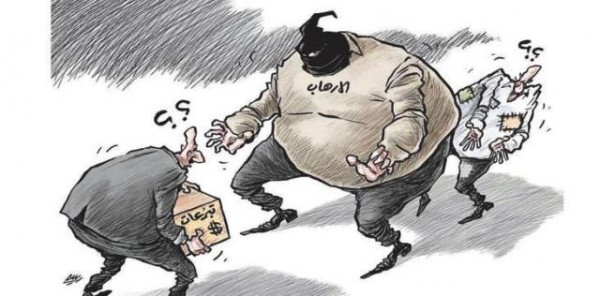Most jihadist terrorist attacks carried out in Europe since 2015 have been funded using “legitimate” sources such as savings accounts and loans, according to a leading academic in the field.
Professor Peter Neumann, director of the International Centre for the Study of Radicalisation, told the Financial Times’ Illicit Trades conference on Thursday that terrorist financing in Europe has changed in recent years because the types of attacks favoured are now relatively cheap to plan.
Terrorist financing traditionally refers to money earned by groups such as Al-Qaeda through international drug trafficking or illicit donations from supporters. Home Secretary Amber Rudd earlier this year pledged to crack down on fake charities that are donating sometimes hundreds of thousands of pound to terrorist groups. These large revenues can be used to fund complex and costly attacks, such as sophisticated bomb plots, as well as subsidising propaganda.
However, plots in Europe have become relatively simple and uncostly in recent years. Tactics such as ramming vehicles into pedestrians, as occurred in Nice and in London, require only the hiring of a van. The most expensive, the November 2015 attacks in Paris, cost a maximum of €20,000 according to the French government. Neumann said some attacks have cost no more than €500.
“Almost all of these attacks were either funded from legitimate sources — from people’s savings, income and small loans — or from petty criminality,” he said. Europe is seeing is the rise of “small-dollar terrorism,” he added, “terrorist attacks that basically cost nothing.”
The number of jihadist attacks in Europe has risen in recent years, jumping from four in 2014to 17 in 2015 and 16 last year, according to EUROPOL. There have already been several severe attacks this year, including the Manchester bombing in the UK and Las Ramblas attack in Barcelona.
€20,000 — The maximum cost of the November 2015 Paris attacks according to the French Government
Almost all European terrorist attacks since 2015 have included “an element of petty criminality,” Neumann said, such as attackers with a history of dealing drugs or selling counterfeit goods. A “remarkable percentage” of jihadists who originated from Europe, he said, “had pasts as gangsters or criminals,” and were often known to the police.
This is a change from 20 years ago, he said, when Europeans who joined Al-Qaeda were often middle-class students who met to discuss theology and became radicalised. Such a change in recruiting tactics has “enormous implications,” said Neumann, since those with criminal pasts often have access to weapons and forged identity documents, and may be prepared to engage in petty criminality to fund terrorism.
Governments and law enforcement must heed this shift, he said, and consider the fight against petty crime as part of the fight against terrorism. Authorities should also consider to what degree prisons facilitate the development of links between the two, he said.







































admin in: How the Muslim Brotherhood betrayed Saudi Arabia?
Great article with insight ...
https://www.viagrapascherfr.com/achat-sildenafil-pfizer-tarif/ in: Cross-region cooperation between anti-terrorism agencies needed
Hello there, just became aware of your blog through Google, and found ...